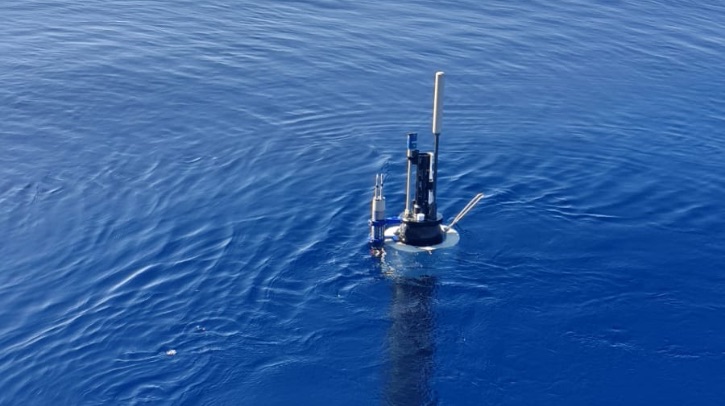A £2.5m (US$3.2m) project led by the University of Southampton and the National Oceanography Centre (NOC) will deploy sensors on board autonomous profiling floats to study the ocean’s heat and carbon sequestration.
Scientists will look at how the ocean breathes through mixing – tiny turbulent movements that pull water, heat and chemicals from its surface down into the deep. This ventilation helps to regulate the Earth’s climate, buffering against the impacts of human-induced climate change. Mixing also reportedly plays a key role in regulating ocean current systems, such as the Atlantic meridional overturning circulation (AMOC).
“Small-scale mixing plays a crucial role in how the ocean exchanges carbon and heat with the atmosphere and stores it below the surface,” said Dr Bieito Fernandez Castro, a lecturer in physical oceanography at the University of Southampton, who is leading the project. “Yet much about this crucial process remains a mystery, so there’s a higher degree of uncertainty in our estimates than we’d like. It happens on such small scales (ranging from centimeters to kilometers) that it has been hard to measure, meaning current ocean and climate models fail to capture the intricate dynamics at work.”
Autonomous floats
The REMIX-TUNE project has been awarded £2.5m (US$3.2m) from the European Research Council to deploy a fleet of autonomous floats in key regions of deep-water formation where much of the heat and carbon sequestration takes place – namely the North Atlantic and Southern Ocean.
Equipped with turbulence sensors and onboard computers, the floats will pass through the water column from the surface down to depths of up to 2,000m and back up again over several years, capturing detailed local data on how water mixes at the mesoscale (large eddies) and microscale (tiny, chaotic swirls).
Dr Castro added, “These profiling floats have been used since the 2000s to measure the temperature and salinity of the ocean, as well as other properties, to help with forecasting and modeling. But they were incapable of observing mixing until now, so it’s exciting to deploy them in significant numbers for this purpose.”
A new generation of ocean-climate models
The data captured is expected to generate the first comprehensive, observation-based global database measuring the role of mixing in ocean ventilation. This detailed new understanding is to feed into the next generation of ocean-climate models, improving their ability to simulate the ocean’s role in storing heat and greenhouse gases.
Dr Alex Megann at NOC, a co-investigator on the project, commented, “Combining the new data with existing hydrographic profiles from the global Argo program, we can reconstruct mixing over the past 25 years over the global ocean to provide much more accurate mixing estimates.
“We’ll then use a model called NEMO, which is the ocean component of the UK’s contribution to the Intergovernmental Panel on Climate Change (IPCC), to use our improved estimates of mixing to give a much clearer picture of how ocean ventilation regulates our climate.”
In related news, the Institute of Arctic and Alpine Research (INSTAAR) at the University of Colorado Boulder recently developed a new model for predicting marine heat waves and extreme ocean acidity. The model is adept at forecasting these events up to a year in advance, with varying degrees of certainty based on the location. Click here to read the full story.



